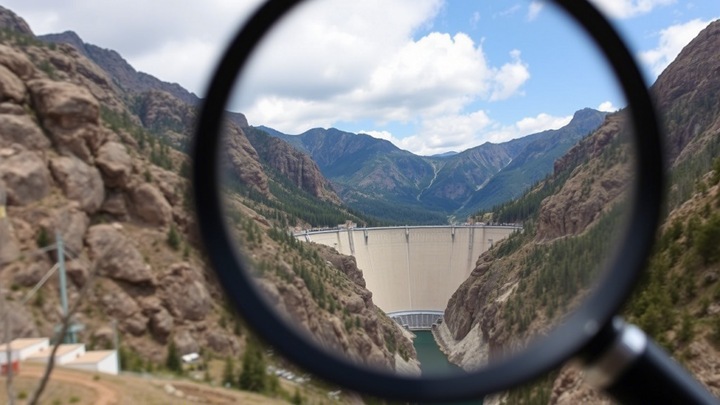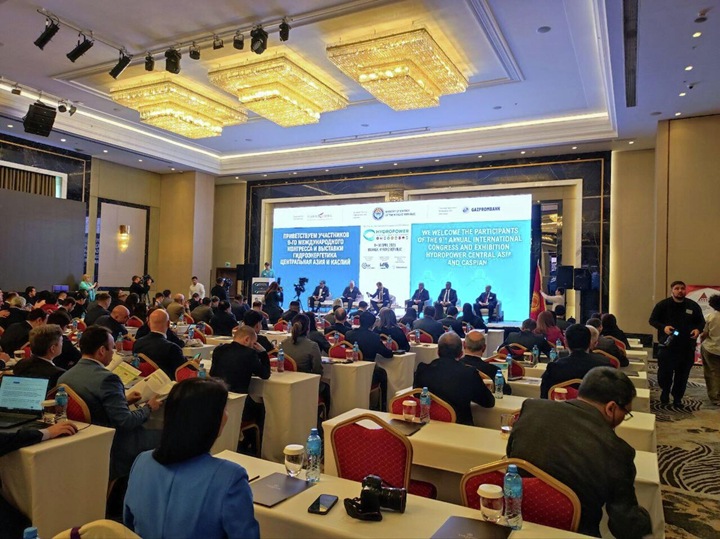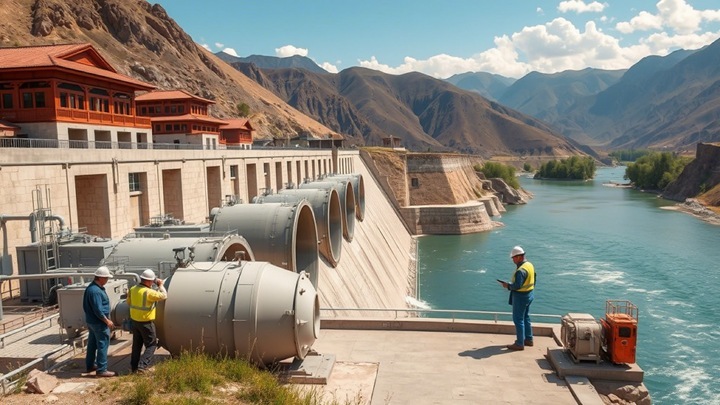The risks of the Rogun Dam require special investigation
The World Bank Inspection Council has published an official request to investigate projects related to the construction of the Rogun Dam in Tajikistan. The complaint against the actions of the World Bank, filed on behalf of local residents from Uzbekistan and Turkmenistan living downstream of the Amu Darya River, highlights the serious and potentially irreversible environmental and socio-economic risks associated with this large-scale hydropower project.

The interests of the applicants are represented by the international ecological coalition “Rivers without Borders”. Environmentalists note that the upcoming investigation should answer critical questions about the compliance of the Rogun Dam construction project with the World Bank’s own socio-environmental standards. The applicants claim that the decision to finance the construction of the Rogun Dam was made by the Board of Directors of the World Bank, despite an incomplete and outdated Environmental and Social Impact Assessment (ESIA) based on outdated data, which inadequately reflects cross-border risks and the cumulative impact of the project on vulnerable ecosystems and the population of the Amu Darya basin.
The request outlines the likely catastrophic consequences of the Rogun Dam construction project for the region, including a significant (up to 25% or more) reduction of runoff entering the Amu Darya delta when filling the reservoir. The change in the water regime due to the creation and operation of the giant Rogun reservoir is likely to aggravate the existing problems of desertification and soil salinization, negatively affect the health and well-being of 8-10 million people in Uzbekistan and Turkmenistan. Of particular concern is the threat to the unique tugai forests, including the Tigrovaya Balka Nature Reserve, recognized as a UNESCO World Heritage Site in 2023, as well as fish species on the verge of complete extinction, such as the Amu Darya pseudopathos.
“The Rogun Dam project in its current unfinished form poses a colossal threat to the environmental stability and well-being of millions of people in Central Asia. Registration of the request by the Inspection Board is an important step confirming the seriousness of our concerns. The World Bank, as a leading international financial institution, cannot ignore its own socio-environmental standards and is obliged to ensure a comprehensive and objective assessment of all risks before continuing to finance the project,” said Evgeny Simonov, International coordinator of the Rivers Without Borders Environmental Coalition.
Environmentalists also share the applicants’ concerns about the lack of proper consultations with the affected project by the local population in downstream countries (Uzbekistan and Turkmenistan) and about insufficient disclosure of information about the Rogun Dam project, including contingency plans, as well as the lack of documents in the languages of the affected communities (Uzbek, Karakalpak, Turkmen). The fact that the applicants were forced to ask for their confidentiality due to the threat of persecution underscores the difficult situation in the region with public participation in the discussion of the implementation of major infrastructure projects.
“Residents of the lower reaches of the Amu Darya have been suffering for decades from the consequences of irrational management of water resources and degradation of the Aral Sea. The Rogun Dam risks becoming the last straw, which will lead to irreversible degradation of vital ecosystems and further deterioration of people’s living conditions. The lack of a full-fledged dialogue with the population of Uzbekistan and Turkmenistan, whose lives directly depend on the state of the river, is a gross violation of the principles of participation and transparency. We demand an immediate revision of the approaches to impact assessment and ensuring the real participation of all stakeholders,” says Manana Kochladze, a representative of the non–governmental organization CEE Bankwatch, which is also actively involved in the process of reviewing the Rogun Dam project for compliance with the socio-environmental standards of the World Bank.
It is worth recalling that last year environmentalists proposed to rework the Rogun Dam project in accordance with the socio-environmental standards of the World Bank, as well as to consider safer and more economical alternatives to the construction of the tallest dam in the world. However, the bank did not consider these proposals.
The Rivers Without Borders Coalition calls on the World Bank and other financial institutions involved in the Rogun Dam construction project in Tajikistan to suspend funding until a comprehensive, independent and transparent investigation of all issues raised in the request and the development of adequate measures to prevent and mitigate the negative consequences of the project.
Page on the problems of the Rogun Dam on the website of the World Bank Inspection Council: Sustainable Financing for Rogun Hydropower Project (P181029) and Technical Assistance for Financing Framework for Rogun Hydropower Project (P178819) | Inspection Panel


